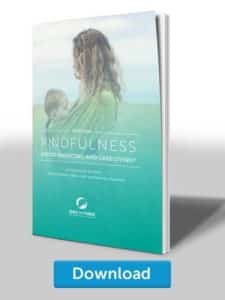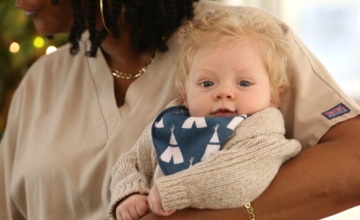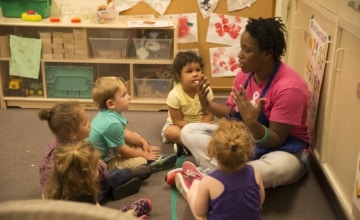The practice of mindfulness has roots in Buddhist traditions spanning more than 2,500 years, and the practice has been adapted frequently to clinical populations for the relief of both physical and psychological symptoms for almost 40 years. Mindfulness “is not a religion,” and instead has “come to be seen as a mode of being.”
 In this piece, mindfulness is defined as “intending and developing the capacity to come back to center; to pay close attention to the internal experience of sensations, thoughts, and emotions with engaged curiosity, equanimity, deep compassion, and acceptance. Thus, mindfulness is defined as moment-by-moment awareness of thoughts, feelings, bodily sensations, and surrounding environment, characterized mainly by “acceptance”—paying attention to thoughts and feelings without trying to distinguish whether they are right or wrong” (Shahmoon-Shanok & Carlton Stevenson 2015, p. 18).
In this piece, mindfulness is defined as “intending and developing the capacity to come back to center; to pay close attention to the internal experience of sensations, thoughts, and emotions with engaged curiosity, equanimity, deep compassion, and acceptance. Thus, mindfulness is defined as moment-by-moment awareness of thoughts, feelings, bodily sensations, and surrounding environment, characterized mainly by “acceptance”—paying attention to thoughts and feelings without trying to distinguish whether they are right or wrong” (Shahmoon-Shanok & Carlton Stevenson 2015, p. 18).







